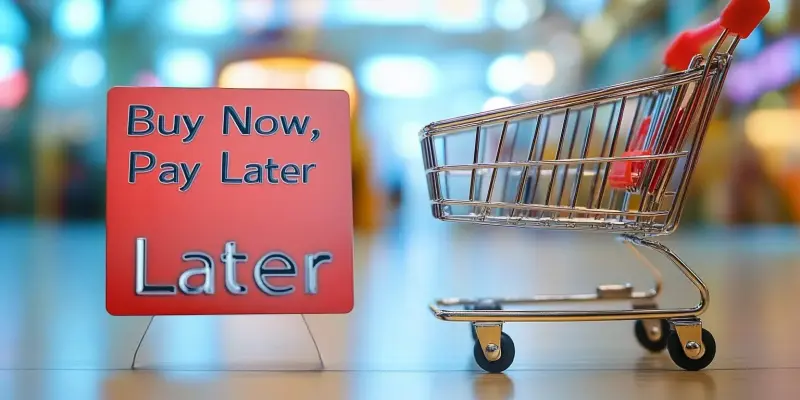In recent years, the “buy now, pay later” (BNPL) payment method has significantly reshaped how consumers manage large, unexpected expenses in sectors like auto repairs and elective health care. This innovative financial service model has created a more accessible way for consumers to handle costly repairs and procedures without feeling an immediate financial burden. Companies such as Tekmetric, which provides software for over 10,000 auto repair shops, have seamlessly integrated BNPL options to better serve their customers’ needs. With platforms like Affirm gaining traction, the adoption of BNPL services illustrates a remarkable shift toward more flexible payment solutions.
The effectiveness of BNPL services in automotive repair shops has been impressive, with customers who utilize these options reported to spend three times more than the average ticket price. By this fall, statistics showed that around 5% of all transactions processed through Tekmetric’s software were completed using BNPL services like Affirm and Klarna. These figures underscore a growing trend where consumers are increasingly leaning on BNPL arrangements to finance necessary yet sudden expenditures such as car repairs.
Expanding Beyond Retail
The Push for BNPL in In-Person Transactions
BNPL platforms have extended their influence far beyond the realm of online retail, now targeting services and in-person transactions. As high-retail periods such as Cyber 5 demonstrate the power of flexible payment solutions, companies like Affirm, Klarna, and Afterpay are driving the adoption of physical BNPL cards. These companies are proactively partnering with various service-based businesses to offer consumers additional financing options. Neil Patel, VP of payments at Tekmetric, explained that BNPL services are particularly advantageous for customers dealing with large, unforeseen expenses, as they allow for more manageable payments over time.
In addition to automotive repairs, BNPL options are being increasingly used in elective health care services, a sector where transactions tend to be high in value. For example, Afterpay reported a record-breaking performance in areas such as arts, travel, and entertainment, especially among younger consumers. Similarly, Klarna observed substantial year-over-year growth in crucial sectors like auto services, travel, and education. These findings reflect a broader market acceptance and trust in BNPL solutions as practical financial tools for managing substantial expenditures.
Health Care and Elective Medical Procedures
Beyond auto repairs, the utilization of BNPL services in health care and elective medical procedures is experiencing a notable increase. The rationale for this shift is clear: healthcare and elective medical procedures often come with hefty price tags that can strain consumers’ budgets. Affirm, for instance, revealed that last year, a significant portion of its volume came from the health care sector, including high-cost services such as cosmetic surgery and dental treatments. These procedures often averaged nearly $2,500 per purchase, showcasing the importance of flexible payment options in making these services more accessible to a broader audience.
Pat Suh, VP of revenue at Affirm, emphasized that high-ticket, unexpected expenses render industries like auto repair and health care particularly suited for BNPL solutions. Affirm recorded a 30% year-over-year growth in the aftermarket auto segment, indicating a strong consumer preference for flexible payment methods. This trend suggests that as more people become aware of and familiar with BNPL platforms, the adoption rate will continue to rise, making larger, necessary purchases more attainable for consumers.
The Future of BNPL
Projected Growth and Consumer Behavior
The future of the BNPL industry looks promising, with projections indicating substantial growth in the coming years. From 2024 to 2025, the expected payment value is projected to increase by 20.4%, reaching an impressive $97.25 billion. According to data from Equipifi, a payment technology platform, BNPL transactions during major retail events like Cyber 5 show exciting trends. For instance, 7.1% of all BNPL transactions during this period were related to auto services, with an average transaction ticket of $390. Moreover, 5.6% of the transactions were health care-related, averaging around $500, while home services accounted for 4.2% of spending.
Bryce Deeney, CEO of Equipifi, believes that BNPL usage is becoming more like credit card behavior during emergencies, providing customers with the necessary flexibility to make essential, often costly purchases. Many consumers now check their BNPL eligibility in advance, allowing them to plan for large expenditures confidently. Tekmetric reports an impressive 72% approval rating for BNPL transactions, offering users pay-in-four options and monthly installment plans to better manage their financial obligations.
Integration and Consumer Empowerment
In recent years, the “buy now, pay later” (BNPL) payment method has significantly transformed how consumers handle large, unexpected expenses, particularly in sectors like auto repairs and elective health care. This novel financial service has made it easier for consumers to manage expensive repairs and procedures without bearing an immediate financial strain. Companies like Tekmetric, which supplies software to over 10,000 auto repair shops, have integrated BNPL options to better cater to their customers’ needs. With platforms such as Affirm becoming increasingly popular, the adoption of BNPL services highlights a substantial shift toward more flexible payment solutions.
The success of BNPL services in auto repair shops has been notable, with customers who choose these options reported to spend three times more than the average ticket price. By this fall, statistics revealed that about 5% of all transactions processed through Tekmetric’s software utilized BNPL services like Affirm and Klarna. These numbers reflect a growing trend where consumers are more frequently relying on BNPL arrangements to cover necessary yet sudden expenses, such as car repairs.

